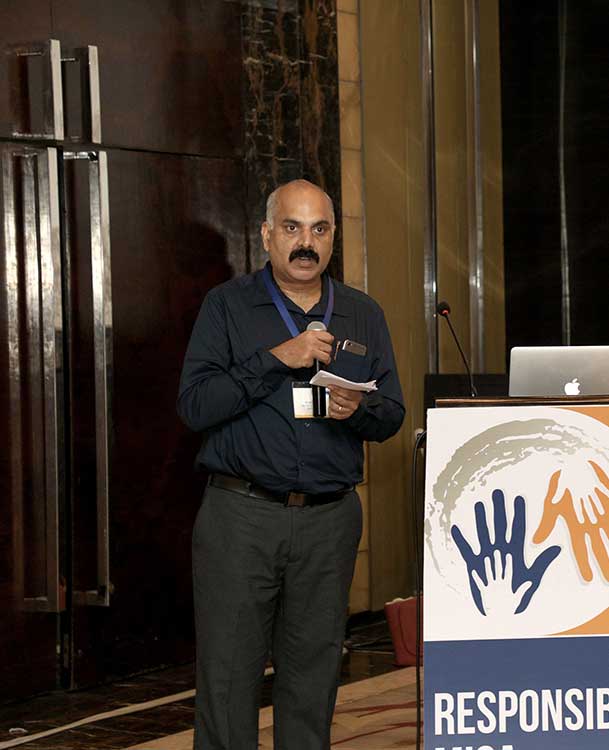A permanent solution to the use of child labor and the prevalence of poor working conditions in the mica sector requires a clear and enforced legal framework throughout the region. The passage of the Forest Conservation Act of 1980, which banned mica mines in the region’s forests, created a vacuum which led to a proliferation of unregulated mines.
Some processors who received mica through unregulated channels sought to avoid regulatory oversight. As a result, working conditions in mines and some processors began to deteriorate.
To reverse this trend, the Responsible Mica Initiative is working collaboratively with various stakeholders including civil society organizations, local mica businesses, various government agencies, sector experts and other interested parties. A multi-stakeholder approach was chosen to ensure that components of a legal framework would protect the rights of workers and prohibit child labor. At the same time it would provide requirements that could be met by operating mines and processors and also be politically acceptable.
Assessment and Advocacy
The legal framework program pillar reviewed laws governing mica mining and processing in Jharkhand and Bihar examining environmental, mining, labor and fiscal laws, among others, and corresponding regulations and an evaluation of court decisions pertaining to mica related operations.
The research began with a review of Bihar Mica Act-1947 and its applicability in present day Jharkhand. The review continued with an analysis of rules and regulations related to mica mining, transportation, storage and trading of mica in its various forms and its presence in value-added products. Enforcement provisions were evaluated to determine which components of existing laws and regulations were being adhered to and which were not.

To contribute to the analysis and recommendations, the Responsible Mica Initiative created a Business Committee comprised of industry leaders in the region, such as a civil society organizations (CSOs) and related associations that are active in the mica sector and adjacent communities. Their in-depth knowledge of the sector, or of the local communities provided a realistic perspective on the areas of improvement of the current legal framework. Just as important, their insights into the day-to-day lives of workers, operations of mines, processors, exporters and other businesses that support the mica sector as well as government officials will lead to supporting the development of laws and regulation that are effective and enforceable.
Working with the Business Committee, the CSO committee and program partners, RMI today advocates for laws and regulations that will support the interests of workers as well as owners and operators of mica mines, processors, exporters, other supply chain members and Governments